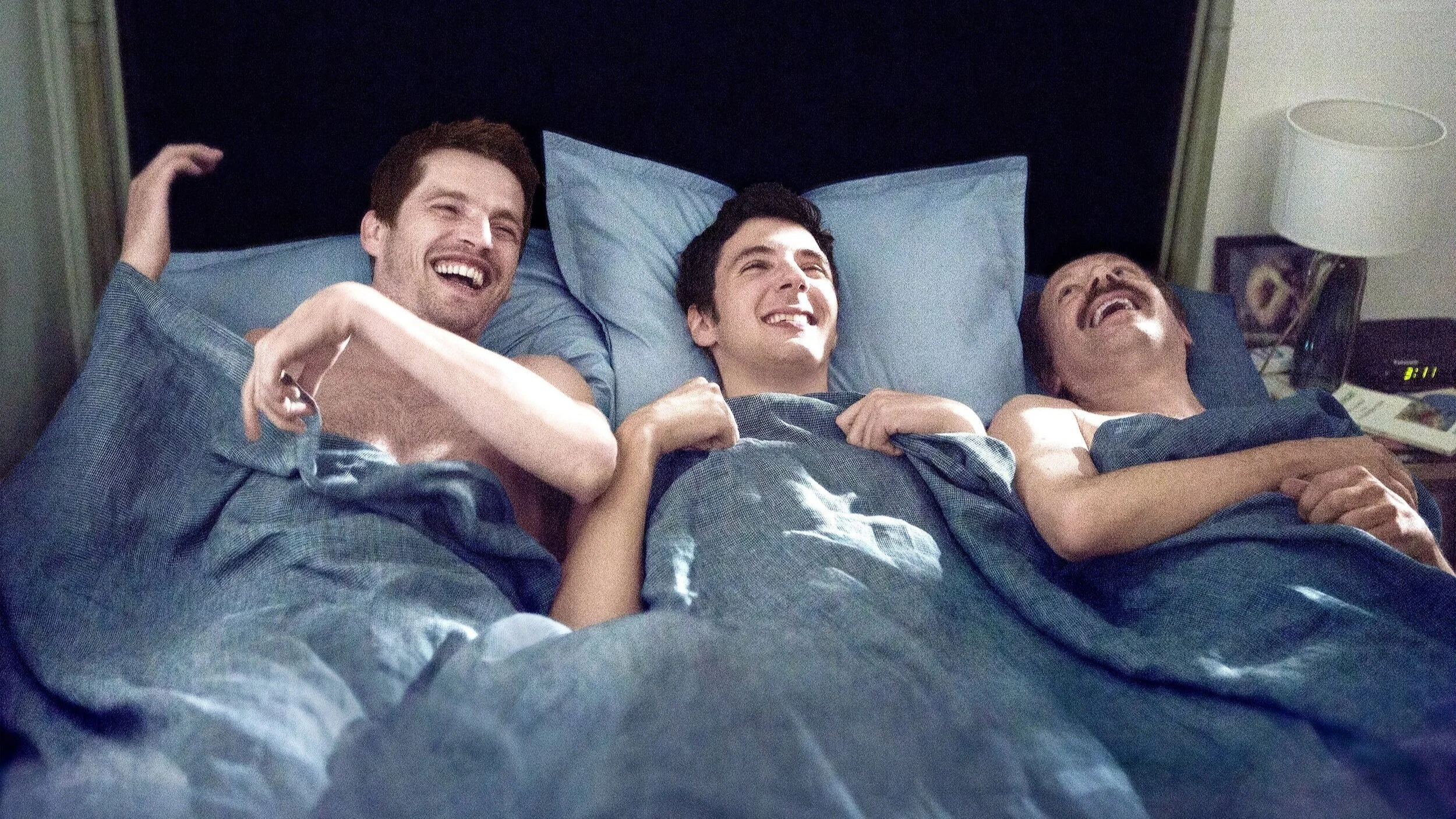Sorry Angel
An appealing and well-acted tale of gay lovers, but one not without its flaws.
Retitled for its British release, this is Christophe Honoré's film originally known as Plaire, aimer et courir vite. For some this is the piece which, considering his somewhat up and down career, has emerged as the work for which they have been waiting and, indeed, for much of its length I thought that they might well be right. Having been unreceptive to such films of his as Dans Paris (2006) and Les Chansons d'Amour (2007), I was pleasantly surprised to find that in Sorry Angel Honoré as writer and director was telling a story both persuasive and interesting and one that came across in a splendidly unforced way.
Sorry Angel is a gay love story set in 1993. Arthur Prigent (Vincent Lacoste) is a 22-year-old living in Rennes who hopes one day to work in film. A writer in his mid-thirties, Jacques Tondelli (Pierre Deladonchamps) arrives there from Paris because a play of his is being staged in Rennes and these two - not an obvious match - meet, flirt and exchange telephone numbers. It is not only age that defines their differences despite their shared artistic interests. Jacques has an ex-lover, Marco (Thomas Gonzalez), who is dying of Aids and he himself is HIV positive although not marked by it. In Paris, he leads the life of a gay man but has with him at home a young son, Louis (Tristan Farge), whose mother is a friend (Sophie Letourneur). Furthermore, Jacques has reached a point in life when he doesn't feel able to commit to another serious gay relationship. In contrast to all that, Arthur, aware of being bisexual, is looking to the future. He has a girlfriend in Nadine (Adèle Wismes), but is now finding that gay life is more important to him. He becomes increasingly drawn to Jacques for reasons far deeper than the fact that the older man is capable of being a mentor.
This is a quintessentially French work strong on period atmosphere and with literary and philosophical references abounding in the talk between these two men. All the players convince and, although the role is arguably less fully developed than one would wish, Denis Podalydès is on fine form as Jacques's gay neighbour, Mathieu. Sorry Angel avoids characters who are gay stereotypes and all seems set for a very effective movie, especially for any gay audiences who feel that these days sex scenes of an explicit nature have become rather too common in films.
One does have to admit that as a portrait linked to the key era of Aids this film is never as outstanding as André Téchiné's The Witnesses (2007) which was set about a decade earlier. Nevertheless, Sorry Angel satisfies strongly until this overlong film (132 minutes) reaches its last quarter. The problem is not only that of length: the narrative starts to ramble, certain scenes seem inessential or not fully persuasive and, just when the drama needs to move into sharp focus, it loosens its grip. It's not fatal - there's a lot to applaud here - but it does mean that ultimately Sorry Angel fails to live up to the high expectations that it has itself aroused.
Original title: Plaire, aimer et courir vite.
MANSEL STIMPSON
Cast: Vincent Lacoste, Pierre Deladonchamps, Denis Podalydès, Adèle Wismes, Thomas Gonzalez, Clément Métayer, Quentin Thébault, Tristan Farge, Sophie Letourneur, Marlène Saldana, Luca Malinowski, Rio Vega.
Dir Christophe Honoré, Pro Philippe Martin and David Thion, Screenplay Christophe Honoré, Ph Rémy Chevrin, Art Dir Stéphane Taillasson, Ed Chantal Hymans, Costumes Pascaline Chavanne.
Les Films Pelléas/Arte France Cinéma/Canal+/Ciné+-Thunderbird Releasing.
132 mins. France. 2018. Rel: 22 March 2019. Cert. 15.


